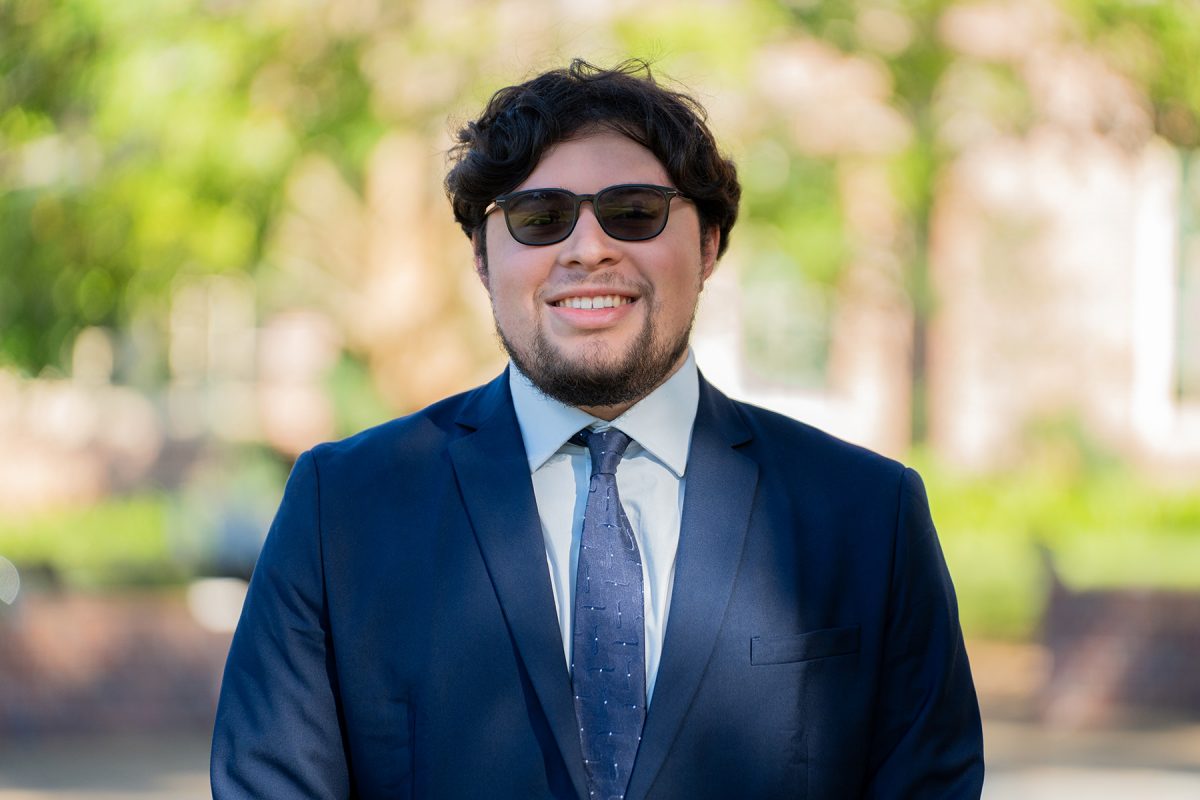
“FSU offered me a unique opportunity to study abroad in the United States.”
Fast Facts
- Polyglot: Speaks four languages
- Musician: Plays guitar and tuba
- Athlete: Plays intramural soccer at FSU
- International student: Born in Panama and lived in Costa Rica
- Favorite video game: 13 Sentinels: Aegis Rim
International student JP Romero came to FSU’s Tallahassee campus to expand his research in biomedical engineering. Romero intends to use his research to give back to his community in Panama through developing more accessible health care devices for deadly diseases.
What made you choose FSU?
FSU offered me a unique opportunity to study biomedical engineering abroad in the United States. I studied at FSU’s Republic of Panama campus, and I came to Tallahassee on the 2+2 scholarship. This scholarship gave me the chance to fulfill my dream of studying abroad at a more affordable price. The biomedical engineering program at FSU was a huge draw for me. I wanted an engineering degree that would expose me to a variety of diverse fields, and I can gladly say that my expectations have been met throughout my time in the program.
What has been an influential academic experience you have had at FSU?
I have been conducting research in microfluidics and arterial thrombosis as part of Assistant Professor Z. Leonardo Liu’s lab for a year. We have been working on the development of biofunctional microfluidic devices that can serve as point-of-care diagnosis tools to guide clinical decisions. As a recipient of an IDEA Grant, I worked on the development and efficiency of 3D-printed microfluidic chips. Three-dimensional printing opens the possibility of establishing a lower cost that can help scale up production of these chips.
My research about arterial thrombosis has the potential to help millions, as cardiovascular disease is a major cause of death in the United States. Developing affordable devices that can be useful as diagnostic tools and can be tailored for individual tendencies is a step in dealing with such a massive issue.
How have you engaged in community service?
While volunteering as a research assistant under Carmenza Spadafora at INDICASAT-AIP (Insituto de Investigaciones Científicas y Servicios de Alta Tecnología – Asociación de Interés Público), a scientific research and technology institute in Panama, I was able to lead a project to study the magnetic properties of the parasite responsible for causing malaria. During my time at her laboratory, I conducted experiments with magnetic coils to study the effects they had on parasites. This was an opportunity to give back to my community in Panama, as this disease remains prevalent in the country.
My research on malaria has been part of an ongoing effort to study diseases that affect populations where less funding is available. In cases like these, it is crucial to continue my work to help all of the people affected, and to reduce the disease and economic burden in the affected countries.



